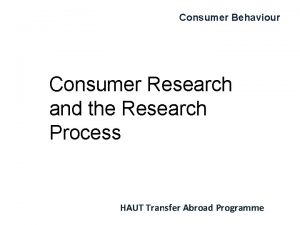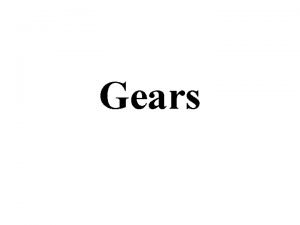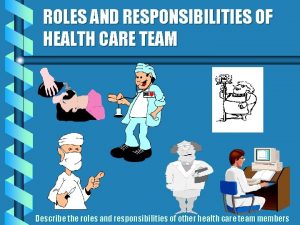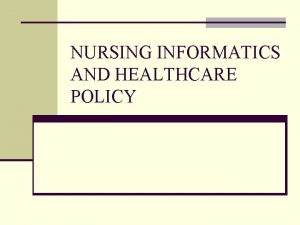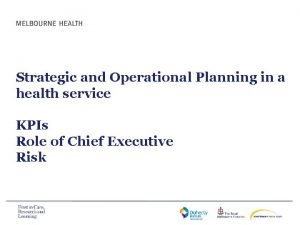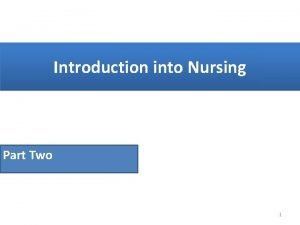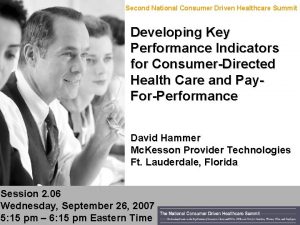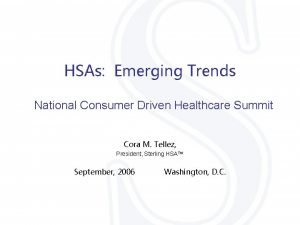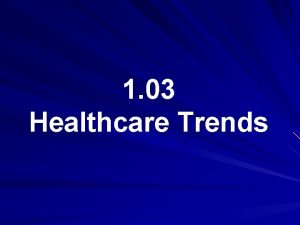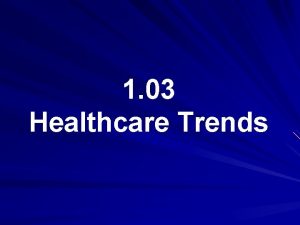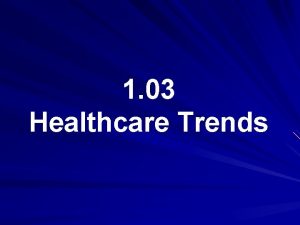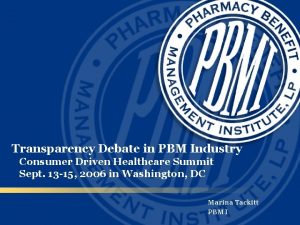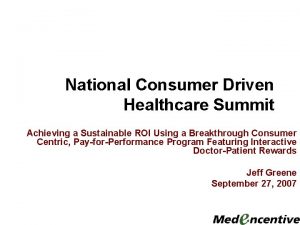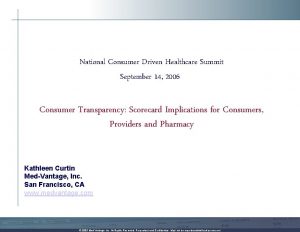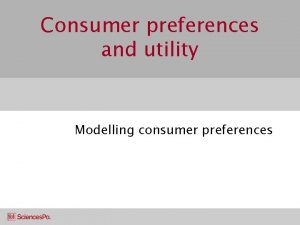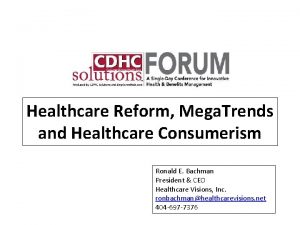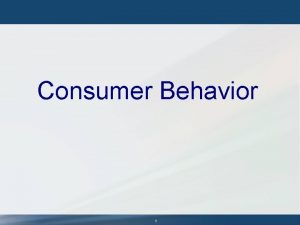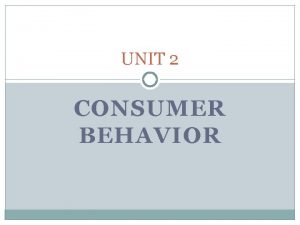Political and Economic Trends in Consumer Driven Healthcare



















































- Slides: 51

Political and Economic Trends in Consumer Driven Healthcare Financing Daniel B. Perrin President, HSA Coalition, Washington, D. C. Gilbert’s Insurance & Consulting Hermitage, PA October 2, 2007 1 01 September 2021

Pressures that Kept Health Care Off the National Agenda n n 9/11, the War on Terror, Afghanistan and Iraq Republican control of the U. S. House and U. S. Senate and the White House Polls showing the Public trusts the Democrats more on Health Care Republicans felt “burned” by Medicare Rx program (feel they got huge amount of grief, no political benefits) Copyright © 2005 HSA Coalition. All Rights Reserved. 2

Pressures that Kept Health Care off the Political Agenda n n n The failure of the Hillary Clinton Health Care effort, and the result: Democrats lost control of the U. S. House and 56 seats in 1994 Democrats feel power of employers and insurers is too great for real reform Democrats and Republicans wary of the issue Republicans would rather talk about something else Lack of consensus on way to reform Copyright © 2005 HSA Coalition. All Rights Reserved. 3

Relevant Political Facts n n Republicans lose 30 Seats in the U. S. House in 2006 Republicans lose 6 seats in the U. S. Senate in 2006 Republicans lose control of both the U. S. Senate and House, are now the minority party Republicans have 21 seats in the Senate up in 2008, Democrats have 11 seats up Copyright © 2005 HSA Coalition. All Rights Reserved. 4

The Great Health Care Battle of 2009 and 2010 n n All Democratic candidates for President have pledged to make “universal health care” their number one priority Democrats retain control the U. S. House and U. S. Senate Republicans lose more seats in the U. S. Senate and U. S. House in 2008 Democrats win the White House in 2008 Copyright © 2005 HSA Coalition. All Rights Reserved. 5

What does “universal health care” mean? (Good Question) n n n It could mean Medicare for everyone It could money to buy health insurance (like food stamps) It could mean a Canadian style system where it is illegal to pay a doctor for his services and there is no private insurance or clinics (uh, mostly) Copyright © 2005 HSA Coalition. All Rights Reserved. 6

The Employers – where will they be? n n n GM and Ford blame high health care costs for their competitive position vs. Japan and other car makers Some large companies want government to take the cost off their books Believe any tax increase to pay for it will be less than they are paying now for health care Copyright © 2005 HSA Coalition. All Rights Reserved. 7

60 Votes in the U. S. Senate – Enough to Stop a Filibuster n n The checks and balances of the American legislative system, with the President being able to veto, and the filibuster in the Senate to protect the rights of the minority, could be eliminated in 2008. If the Democrats can get to 60+ votes on health care reform in the Senate, while they control the White House and U. S. House, what ever they decide “universal health care” is will be law. Copyright © 2005 HSA Coalition. All Rights Reserved. 8

Odds are Nothing will Change, much n n It took 14 years to pass the law creating HSAs: 7 years to create the pilot as MSAs, and another 7 years to end the pilot and pass HSAs It took three years with the Republicans in control of the U. S. House, the U. S. Senate and the White House to pass the Medicare Rx program Copyright © 2005 HSA Coalition. All Rights Reserved. 9

What about HSAs? n n A popular tax break, like any government program, is tough to stop. Just because you have government run health care does not mean HSAs will not be part of it. Copyright © 2005 HSA Coalition. All Rights Reserved. 10

The Politics of Health Care n Questions? Copyright © 2005 HSA Coalition. All Rights Reserved. 11

Recent HSA Trends n HSAs now serve over a million more covered lives than HRAs, but both are accelerating n Top 40 largest Firms (actual reported covered lives) n n n HSA -- 4, 672, 156 (58. 9%) HRA -- 3, 428, 310 (43. 2%) HSAs will easily reach 10 million covered lives by the end of 2008 Copyright © 2005 HSA Coalition. All Rights Reserved. 12

Blues vs. United n Blues plans as a group have overtaken United in total national CDH Plan enrollment n n Blues -- 3, 073, 365 (38. 7%) United -- 2, 238, 000 (28. 2%) Other -- 1, 794, 645 (22. 6%) HSAs are offered as a "third option" to PPOs and HMOs by all major carriers Copyright © 2005 HSA Coalition. All Rights Reserved. 13

Enrollment Estimates By Consumer Driven Market Report n New Industrywide Jan '06 July '07 Jan '08 HSAs 3. 2 M 5. 8 M 7. 2 M HRAs 2. 9 M 4. 3 M 5. 0 M TOTAL 6. 1 M 10. 1 M 12. 2 M Copyright © 2005 HSA Coalition. All Rights Reserved. 14

United Benefits Advisors Survey n Enrollment Growth n n n Recent survey of over 10, 000 employers The number of employers offering CDH plans has grown 51% in the last year The number of covered workers grew even faster (76%), from 3. 4% of all workers in 2006 to 6% in 2007 A greater percentage of small employers (25 - 100 workers) offer CDH Plans than do employers with 1, 000+ workers CDH plan premiums grew 2. 7% in 2006, compared to 7. 2% for all plans Copyright © 2005 HSA Coalition. All Rights Reserved. 15

Hewitt & Associates Study n n n > 20% of companies offer, or plan to offer, a HDHP/HSA by end of 2007 > 50% of companies are considering offering an HDHP/HSA at a future date Employee enrollment expected to grow to 20% in five years (3% now) Copyright © 2005 HSA Coalition. All Rights Reserved. 16

Aon Consulting Worldwide n 37% of employers offer CDH plans to employees in 2007 (28% in 2006) n n n 42% offering HRA plans 48% offering HSA plans 10% offering both 60% of employers have > 10% employee participation in CDH plans in 2007 (53% in 2006) 83% of employers offer CDH plans in addition to other plans (17% offer in lieu of) Copyright © 2005 HSA Coalition. All Rights Reserved. 17

Trends in General n Virtually every carrier offering HSAqualified plans n n Most people don’t have to change carriers to switch to an HSA plan Kaiser Permanente offering HSAs in all markets Plans refining plan designs and consumer tools Good discounts not available in all markets Copyright © 2005 HSA Coalition. All Rights Reserved. 18

AHIP Study – Insurers HSA Book of Business Copyright © 2005 HSA Coalition. All Rights Reserved. 19

Employer Trends n Small businesses and self-employed quickly converted to HSAs n n Many were already using high deductible plans Fastest growth coming from mid- and large -sized companies n n 2004: < 10% of mid-size and large firms offered high deductible plan option 2007: > 60% of mid-size and large firms will offer a high deductible plan option Copyright © 2005 HSA Coalition. All Rights Reserved. 20

HSA Enrollment by Market Segment Copyright © 2005 HSA Coalition. All Rights Reserved. 21

By the Numbers: HSA Market Segments Copyright © 2005 HSA Coalition. All Rights Reserved. 22

Of Lives Covered by HSAs, Percentage by Market Type Copyright © 2005 HSA Coalition. All Rights Reserved. 23

Adoption of HSAs by Firm Size Copyright © 2005 HSA Coalition. All Rights Reserved. 24

Single and Family HSA Deductibles in Large Group Copyright © 2005 HSA Coalition. All Rights Reserved. 25

Small Group Deductible Averages Copyright © 2005 HSA Coalition. All Rights Reserved. 26

Financial Institutions n At least $3. 2 billion in HSA accounts as of December, 2006 (ICDC) n n Most large national and regional banks offering HSAs n n Financial Research Corp. projects $15 Billion in HSA Assets by end of 2010 (conservative estimate) Many have partnered with insurance carriers Niche banks (HSA Bank, First. HSA) doing well Community banks and credit unions slow to respond Fidelity started offering HSAs last Fall Copyright © 2005 HSA Coalition. All Rights Reserved. 27

It’s About the Money n n n Congresswoman Julia Carson (D-IN) Explaining MSAs to my Wife! Taking my kids to the amusement park United Benefit Advisors: 3. 4% annual premium increase Deloitte: 2. 8% annual premium increase Copyright © 2005 HSA Coalition. All Rights Reserved. 28

Mis-Alignment of Incentives Copyright © 2005 HSA Coalition. All Rights Reserved. 29

Push-Backs: HSAs are for the Wealthy n n n Assurant reports 43% of its HSAs sold were purchased by the previously uninsured. ehealthinsurance reports 32. 8% of its HSAs sold were purchased by the previously uninsured. AHIP reports 31% of its HSA health plans sold were purchased by the previously uninsured. If HSAs are for the wealthy, why are the uninsured buying them at such a high rate? Are the uninsured wealthy? Copyright © 2005 HSA Coalition. All Rights Reserved. 30

Push-Back: HSAs Are Only for the Healthy Why the less healthy will benefit from an HSA: n Choice and Control: the non-financial incentive n Saving Money: the financial incentive n For a Traditional Low Deductible, High Premium Family Plan, the less healthy will spend: $11, 480 for the premium ($957/monthly) + $ 500 deductible, + $ 1, 000 (for 20% co-insurance up to $5, 000) n _______ = $12, 980 for 100% coverage which is what the less healthy want Copyright © 2005 HSA Coalition. All Rights Reserved. 31

Mc. Kinsey & Co. on Behavior of the Less Healthy HSA Results: Fewer doctor visits, fewer emergency room visits, higher compliance with treatment regime, Rx and care of self. “We must also note that most of the CDHP participants in our study were not covered under HSAs, but under a similar, though less taxadvantageous, type of account called a Health Reimbursement Account (HRA). Because savings balances in HRAs are only notional, and not portable should an employee move on, we suspect that the behavior changes we observed would become more accentuated with HSAs (these accounts, like 401 k plans, truly belong to the consumer). [Emphasis supplied. ]” Copyright © 2005 HSA Coalition. All Rights Reserved. 32

Where HSAs are in Early ‘ 07 n n n More than 500 banks now offer HSAs More than 325 credit unions now offer HSAs Nine of the top 10 U. S. mutual fund companies (like Vanguard and Fidelity) have funds that accept cash from Health Savings Accounts 200 different mutual funds accept funds from HSAs Milliman, USA: More than 95% of all health insurers sell HSA qualified health plans Copyright © 2005 HSA Coalition. All Rights Reserved. 33

How many HSAs are there now? How many HSAs will there be? n n U. S. Treasury: In four years (2010): 14 million HSAs, with changes to current law, there will be 21 million Some estimates predict 30 million HSAs by 2010 AHIP: as of January, 2007, there were 4. 5 million HSA qualified health plans sold; in 2005, there were 1 million HSA qualified health plans sold HSA sales growth rates exceed those of 401(k)s, IRAs and 529 s in their early years Copyright © 2005 HSA Coalition. All Rights Reserved. 34

The Insurance Part of an HSA: Low Premium, High Deductible n n n HSA Family Plan, Low Premium High Deductible: $4, 000 deductible, 100% coverage thereafter, a $525/month premium $6, 300 for the premium + $4, 000 in the HSA = $10, 300 This does not count the $1, 000 in tax savings at the 25% tax bracket ($4, 000 x. 25) Average family health plan premium in the U. S. in 2006 cost $11, 480 (not counting deductibles, coinsurance, co-pays) Copyright © 2005 HSA Coalition. All Rights Reserved. 35

Decrease Your Rate of Increase The money in their HSA is their money n n n You are paying employees not to get into their deductible and therefore, not to increase your premiums in the out-years. A 3% increase on a $525 a month premium is $189 a year. A 12% increase on a $957 a month premium, is $1, 378 a year. If your employees do not want to make their own decisions for their own health care, then who do they want to make the decisions for them? -- Senator Sam Brownback (R-KS) Copyright © 2005 HSA Coalition. All Rights Reserved. 36

The Brezhnev Doctrine Applied to HSAs n n The Brezhnev Doctrine said: once you are a Communist country in the Soviet orbit, you can never leave, or we will use force to keep you in the Soviet orbit. If you move from a high premium low deductible health plan, to a low premium high deductible health plan, how likely is it that you will switch back? Not likely. A Vermont Business Association had 700 businesses switch to an HSA, and not a single one switched out of their HSA the next year. Here is something to ponder: What will moving from a $957 a month premium for a family to $525 a month premium do to an insurers’ top line revenue? Copyright © 2005 HSA Coalition. All Rights Reserved. 37

The 7 Steps for Employers n First, in general: n n KISS is the operative word when adopting HSAs refinance your health care and Move you to a defined contribution plan, not a defined benefit plan Employees will focus on their risk Copyright © 2005 HSA Coalition. All Rights Reserved. 38

The 7 Steps for Employers 1. 2. Aggregate the funds spent on health insurance (including dental, vision and prescription benefits) by both employer and employee. For a family plan, that number is likely between $9, 500 and $11, 500 a year. Do not add any more funds the for the 2006 plan year. The additional 10% to 15% per year cost increases you have likely been subjected to will be immediately cauterized. So, step one is not to spend whatever next year’s increase would have been, and begin to think in terms of a per family pile of cash and a per individual pile of cash. Step Copyright © 2005 HSA Coalition. All Rights Reserved. 1 of 7 39

The 7 Steps for Employers 2. With the $10, 500, pick a family deductible of say $4, 000. Then, fund the employees HSA to 100% of the deductible. The remaining $6, 500 -- in most cases -- will be enough to fully fund the premium. FUND the ACCOUNT FIRST NOT the PREMIUM. You are giving your employees money that used to go to the insurer. It is going in their pocket instead. Step Copyright © 2005 HSA Coalition. All Rights Reserved. 2 of 7 40

The 7 Steps for Employers 3. Once you have fully funded the account, select an insurance plan that covers 100% of costs above the deductible. Employees understand, quickly, what it means if they have $4, 000 in the account, with a deductible of $4, 000 with 100% coverage above the deductible, all their costs are covered. In insurance speak, this rule means: the deductible equals the maximum out-of-pocket costs of the policy. Do not talk about the deductible level first when talking to employees. Talk about the money in the account first. Remember my wife. Step of 3 7 Copyright © 2005 HSA Coalition. All Rights Reserved. 41

The 7 Steps for Employers You have now created a fully funded account, with zero risk to your employees. They have skin in the game, in fact, they have $4, 000 – which is their money – and which they will spend a whole lot more carefully than they will spend your money or the insurer’s money. You are paying them not to get into their deductible. Further, vision, dental (like braces for your kids) and over-thecounter drugs, and prescriptions are tax-free qualified HSA expenditures. So is LASIK surgery. Step Copyright © 2005 HSA Coalition. All Rights Reserved. 4 of 7 42

The 7 Steps for Employers 5. You should be prepared for an ear ache from your employees if the account is loaded down with monthly and other fees. You need to tell your employees that an their Health Savings Account is like having an IRA account that you can keep cash in to pay your medical bills. Once the balance is close to their health plan deductible, they can invest the surplus in stocks, bonds and mutual funds. You can invest HSA dollars the same investments you can hold with an IRA. Step Copyright © 2005 HSA Coalition. All Rights Reserved. 5 of 7 43

The 7 Steps for Employers 6. IF during the first part of the first year of an HSA, an employee incurs significant health care expenses, without having time to build up the funds month by month in their account, what do you do? (You start your HSA Jan. 1, you have a car accident Jan. 2 and are in the ICU – but you have only one month’s deposit in your HSA. ) The employer can advance the funds to cover the deductible (and deduct the same from the employee’s pay check over the course of the year) or a hospitalization rider or accident rider can effectively do the same thing. HSA rules allow any type of insurance rider that pays a specific dollar amount if x happens. For example, a rider that says, we will pay you $5, 000 if you an emergency room visit. Step Copyright © 2005 HSA Coalition. All Rights Reserved. 6 of 7 44

Hospital Indemnity Rider One Time Charge - $85 Copyright © 2005 HSA Coalition. All Rights Reserved. 45

The 7 Steps for Employers 7. Do not allow one type of health insurance choice, say a PPO, to be get more funding than another type of option, like the HSA. Part of moving to a defined contribution is that each type of plan receive the same dollar amount towards it by the employer. The employees then can make their own choice of which plan they want to pay towards, or not – and again, the employee bears the variable cost increases. (This is why an annual 3% increase on a $475 premium is important, as opposed to an annual 10% increase on a $957 premium. ) Step Copyright © 2005 HSA Coalition. All Rights Reserved. 7 of 7 46

Refinancing your Health Care Benefits - Recap n $956. 67: Average monthly premium for average 2006 Family Health Insurance n $11, 480: Annual 2006 Cost of Family Health Insurance in the U. S. (Source: Kaiser Foundation) Copyright © 2005 HSA Coalition. All Rights Reserved. 47

Premium + HSA Deposit $6, 300: Annual Premium for $4, 000 Deductible Family Health Insurance Policy ($525 a month) n $4, 000: Annual Family Deductible ____ n $10, 300: Annual Premium plus HSA funded at 100% of Deductible n Copyright © 2005 HSA Coalition. All Rights Reserved. 48

Comparison to Traditional Health Insurance n $11, 480: n $9, 700: Annual Cost of Family Health Insurance in U. S. Total cost of Premium and 100% Funded HAS _______ $1, 780 Savings with a Fully Funded HSA Copyright © 2005 HSA Coalition. All Rights Reserved. 49

Employers HSA Plan Design n Questions? Copyright © 2005 HSA Coalition. All Rights Reserved. 50

Discussion n Questions and Answers n Dan. Perrin@hsacoalition. org Copyright © 2005 HSA Coalition. All Rights Reserved. 51
 Food chain diagrams
Food chain diagrams Healthcare and the healthcare team chapter 2
Healthcare and the healthcare team chapter 2 Sports medicine definition
Sports medicine definition Chapter 1 history and trends of healthcare
Chapter 1 history and trends of healthcare Test chapter 1 history and trends of health care
Test chapter 1 history and trends of health care Consumer driven contract testing
Consumer driven contract testing Consumer-driven contract testing
Consumer-driven contract testing Black box model consumer behaviour
Black box model consumer behaviour Types of buyer behavior
Types of buyer behavior Equifax national consumer credit trends report
Equifax national consumer credit trends report Economic growth trends
Economic growth trends Global facility for disaster reduction and recovery
Global facility for disaster reduction and recovery Herbivore in the desert
Herbivore in the desert Consumer diversity in consumer behaviour
Consumer diversity in consumer behaviour Consumer behaviour research process
Consumer behaviour research process Puritans england
Puritans england Forces behind management thoughts
Forces behind management thoughts Chapter 3 political and economic analysis
Chapter 3 political and economic analysis Chapter 3 political and economic analysis
Chapter 3 political and economic analysis Prof. meier and baldwin
Prof. meier and baldwin Pest political economic social technological
Pest political economic social technological Economic growth vs economic development
Economic growth vs economic development Chapter 1 lesson 2 our economic choices worksheet answers
Chapter 1 lesson 2 our economic choices worksheet answers Discuss the current technologies of media and information
Discuss the current technologies of media and information Using risk to balance agile and plan driven methods
Using risk to balance agile and plan driven methods Tools and equipment
Tools and equipment Sales & operations planning in sap
Sales & operations planning in sap 26108 raceways and fittings
26108 raceways and fittings Sequential program and an event-driven program
Sequential program and an event-driven program Are gears wheels
Are gears wheels What are the advantages of command line interface
What are the advantages of command line interface Surgical team roles and responsibilities
Surgical team roles and responsibilities Nursing informatics and healthcare policy
Nursing informatics and healthcare policy Strategic and operational planning in healthcare
Strategic and operational planning in healthcare Medical internet of things and big data in healthcare
Medical internet of things and big data in healthcare Chapter 5 legal and ethical responsibilities answer key
Chapter 5 legal and ethical responsibilities answer key Ibm healthcare and life sciences
Ibm healthcare and life sciences Importance of medical law
Importance of medical law Mis chapter 7
Mis chapter 7 Legal and ethical principles in healthcare
Legal and ethical principles in healthcare Ibm innovation that matters
Ibm innovation that matters Europe healthcare archiving and ediscovery market outlook
Europe healthcare archiving and ediscovery market outlook Pros and cons of virtual reality in healthcare
Pros and cons of virtual reality in healthcare Legal implications in nursing practice
Legal implications in nursing practice Section 1 guided reading and review labor market trends
Section 1 guided reading and review labor market trends Trends and issues in nursing
Trends and issues in nursing Globalization and competition trends in hrm
Globalization and competition trends in hrm Describe trends
Describe trends Depth and complexity icon
Depth and complexity icon Ihrm trends and future challenges
Ihrm trends and future challenges Gis evolution and future trends
Gis evolution and future trends Modelling relationships and trends in data
Modelling relationships and trends in data














